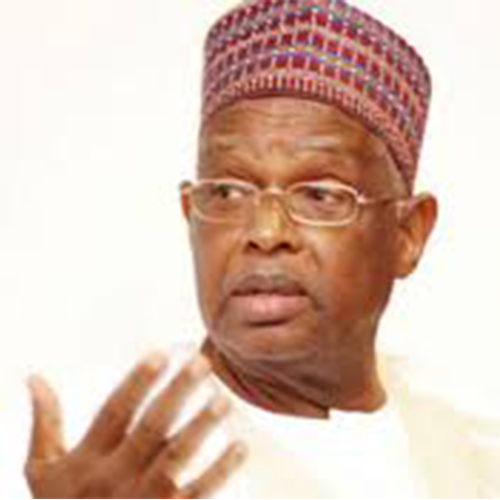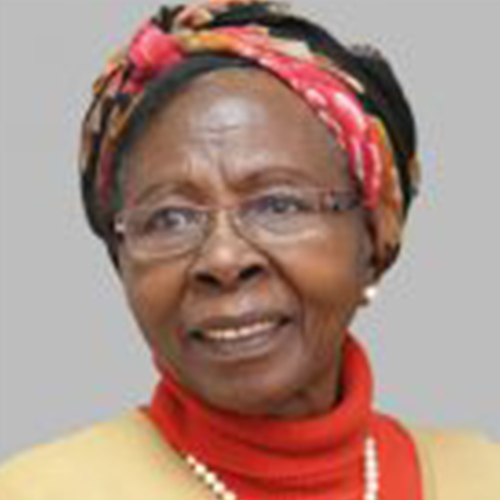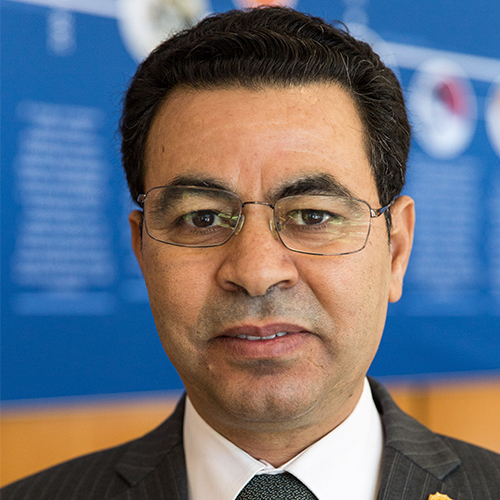AESA PROGRAMMES
- Building R&D Infrastructure
- Developing Excellence in Leadership, Training and Science in Africa (DELTAS Africa)
- Human Heredity and Health in Africa (H3Africa)
- Africa’s Scientific Priorities (ASP)
- Innovation & Entrepreneurship
- Grand Challenges Africa
- Grand Challenges Innovation Network
- Rising Research Leaders/Post-Docs
- AESA RISE Postdoctoral Fellowship Programme
- African Postdoctoral Training Initiative (APTI)
- Climate Impact Research Capacity and Leadership Enhancement (CIRCLE)
- Climate Research for Development (CR4D)
- Future Leaders – African Independent Research (FLAIR)
- Critical Gaps In Science
- Clinical Trials Community (CTC)
- Community & Public Engagement
- Mobility Schemes: Africa-India Mobility Fund
- Mobility Schemes: Science and Language Mobility Scheme Africa
- Research Management Programme in Africa (ReMPro Africa)
- Science Communication/Africa Science Desk (ASD)
- Financial Governance: Global Grant Community (GGC)
- AAS Open Research
- CARI Programmes
- Evidence Leaders Africa (ELA)
Fellows of the AAS
We recognise excellence through the election of Fellows and Affiliates and science prizes to honour outstanding scientists
One of the core mandates of The African Academy of Sciences (The AAS) is to recognise excellence and it does this is by electing scholars who have excelled in their fields of expertise as its members. The AAS Fellowship comprises individuals who have reached the highest level of excellence in their field of expertise and have made contributions to the advancement of the field on the African continent. Fellows of The AAS are elected based on their achievements that include their publication record, innovations, leadership roles and contribution to society. Election into The AAS Fellowship is done through a rigorous review process.
2021 Call for Nominations for the African Academy of Sciences Fellowship The 2021 Call for Nominations for the African Academy of Sciences Fellowship opened on 4th March 2022. Nominations are submitted by the current AAS Fellows and Associate Fellows. However, individuals who are interested in becoming Fellows of AAS may themselves approach an AAS Fellow to nominate them. Profiles of Fellows of the AAS are available on our website and once you identify a Fellow/Associate Fellow, you may contact the AAS Secretariat to put you in touch with Fellows who can nominate you. More information on the AAS Fellowship and the nomination process, is available here. Nominations must be submitted by 29th April 2022. Please contact fellows@aasciences.africa if you need any clarification.
Disciplines of the AAS
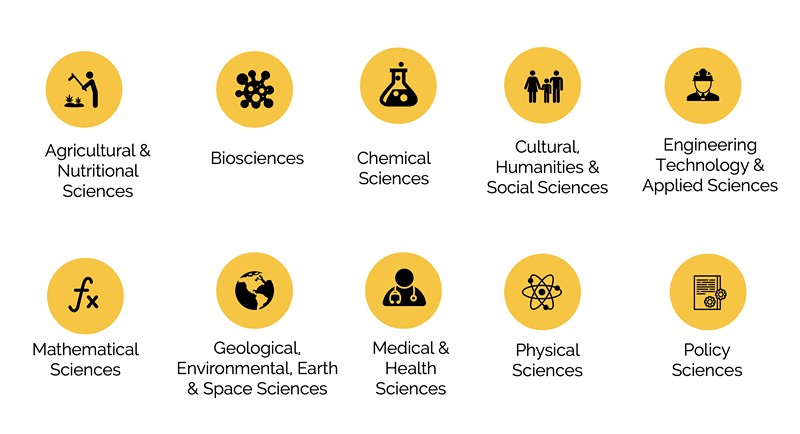
Meet the Team
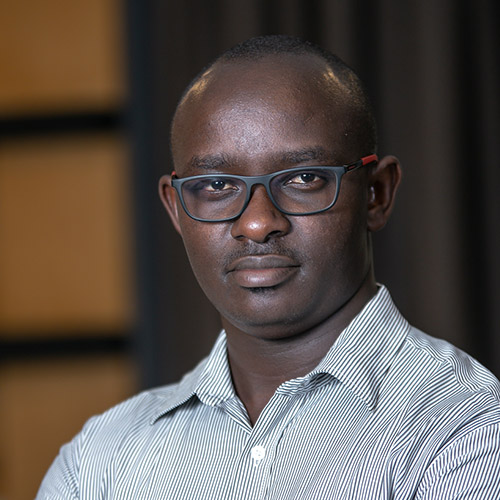

Categories of Fellows
Although the term “Fellow” is used generally to refer to all those elected into The AAS Fellowship, the Fellowship has three categories.
Fellows who are elected from among active African scientists residing in Africa or elsewhere and who have attained the highest international standards and/or who have made significant contributions to the development and application of science, technology and innovation in Africa.
Associate fellows who are elected from among active and outstanding non-African scientists residing elsewhere or in Africa and who have made significant contributions to the development of researchers, as well as the development of science, technology and innovation in Africa.
Non-African scientists who have taken citizenship of an African nation and Africa-born scientists who may have taken citizenship outside Africa will be considered under the category, ‘Fellows’.
Honorary fellows who are elected from amongst persons of eminence who have made significant contribution to the objectives of the Academy.
- Recognition of their outstanding contribution to development on the continent
- The honour of being elected into a continental academy and displaying the prestigious title Fellow of the African Academy of Sciences (FAAS) after their name and/or signature.
- Form the General Assembly (GA), the highest and ultimate decision-making governance organ of The AAS to which the Governing Council (GC) is responsible. The GC is the Policy organ of the Academy.
- Enable The AAS to achieve its core mandates of Recognising Excellence; Implementing Science, Technology and Innovation Programmes and providing Advisory and Think Tank functions helping to develop strategies that promote science in Africa and that are relevant to the continent.
- Lead in policy formulation strategies and engage with governments and policy makers towards the promotion of Science, Technology and Innovation on the continent.
- Serve in various The AAS working groups and committees to oversee the activities of the secretariat
- Serve as expert reviewers, speakers, steering committee and GC sub-committee members, GC members for The AAS activities and those of its partner organisations.
- Take part in the recruitment of Fellows by identifying and nominating deserving scholars to The AAS Fellowship, taking part in the voting process, and assisting the secretariat to maintain high standards in the recruitment process.
- Fellows are required to pay membership fees comprising a modest joining fee ($100) and subsequent annual subscription fee ($50).
- It is expected that every Fellow should nominate at least one woman for Fellowship, and all women Fellows are encouraged to nominate two women.
There is no age limit and candidates may be elected from all disciplines. The AAS has clustered the various disciplines into ten clusters:
- Agricultural and Nutritional Sciences
- Biosciences
- Chemical Sciences
- Cultural Sciences Humanities and Social Sciences
- Engineering Technology and Applied Sciences
- Geological; Environmental; Earth and Space Sciences
- Mathematical Sciences
- Medical and Health Sciences
- Physical Sciences
- Policy Sciences
To be considered for nomination, candidates for The AAS Fellowship must:
- Have obtained a PhD or equivalent qualification no less than 10 years before the year of nomination and have outstanding post qualification academic achievements
- Demonstrate contributions that they have made to Africa. Candidates for Associate Fellowship must, in addition, demonstrate supervision of several African masters and doctoral students and published papers based on research in Africa with a substantial number of the African research papers having African first authors.
- Candidates must be individuals who are currently active and if not, it should be stated on the form, what contribution they would make to be considered as members of The AAS.
- Demonstrate outstanding scientific excellence and the nominee's work must stand out in his or her discipline on the African continent
- Demonstrate outstanding scientific leadership and citizenship and, if applicable, contribution to policy
- Demonstrate evidence of recognition by their peers in the field such as active peer review of journal articles, membership of scientific advisory committees, invited lectures, awards, prizes, membership in other academies or professional bodies
- Publish with publishers of high reputation and have high impact factor in scientific journals of high calibre with a Scopus H-index of 20 or higher. Have at least one journal article with 100 or more citations.
- Have first author position in a substantial number of publications
Nomination Process
The African Academy of Sciences accepts nominations for Fellows in the first half of each year. A nomination call is sent out to all The AAS Fellows and Associate Fellows. A notification also goes out to non-Fellows informing them of the open call. Only current AAS Fellows and Associate Fellows can submit nominations. Self nomination is not accepted but as indicated below, interested individuals may request a Fellow or Associate Fellow of AAS to nominate them. The call remains open for two months.The AAS reiterates its goal to admit more women into the Fellowship. All Fellows are expected to nominate at least one woman and women Fellows are highly encouraged to nominate two women. Nominations are submitted on the AAS Ishango Online System. The nomination process for all Fellowship categories (Fellow / Associate Fellow / Honorary Fellow) is as follows:
- As a Prospective Nominee:
This is where a prospective candidate for AAS Fellowships directly approaches an AAS Fellow to nominate them.
- Search the AAS Fellows Database for Fellows who qualify to submit a compelling nomination on your behalf.
- If you don’t have their contacts, contact the Secretariat via fellows@aasciences.africa to introduce you to the suggested Fellows. Requests to Secretariat for introductions to Fellows MUST be received not less than a month to the deadline of the Call for Nominations as the process of nomination requires adequate time on the part of the Nominating Fellow.
- Upon introduction to the Fellow, provide adequate information about your scientific achievements that will enable them to make the decision on whether to nominate you or not.
- Once the nomination process has been initiated, be proactive in supporting your Nominator to complete the nomination form. Incomplete nomination forms shall not be considered.
- As an AAS Fellow/Associate Fellow:
You can either nominate candidates you already know or accept to nominate candidates who approach you through the secretariat.
- Inform the nominee of your intention to nominate them and request them to provide you with the necessary document as indicated in the Nomination Dossier below.
- Initiate the nomination process on the AAS Ishango Online System by filling in the required information.
- Upon filling in the details of your nominee, they receive an email to log into the system and provide additional information to complete the process.
- Seek another Fellow to second your nomination
- Complete all the fields in the nomination form, validate and submit the form.
- An email is sent to you upon submitting your nomination.
These are the documents that comprise a complete nomination and MUST be uploaded on the AAS Ishango Online System.
- A completed online Nomination Form endorsed by the Nominator and Nominee and seconded by another Fellow.
- An updated Curriculum Vitae of the Nominee.
- Five (5) soft copies of the Nominees best publications
- Letters from three of the Nominee’s referees
A Membership Advisory Committee (MAC) is set-up for each of the ten (10) AAS scientific clusters through which the nominations undergo a rigorous peer-review process. Nominees are reviewed based on their scientific excellence, leadership and citizenship using various indicators such as publications, authorship, patents, commitment to advancing science in Africa, mentorship and supervision roles, recognition by peers, science advocacy, leadership positions held and responsibilities, innovations, contribution to policy.
- Stage One: MACs review all nominations in their respective discipline and prepare a review report.
- Stage Two: Based on the MACs review report, Fellows vote on recommended candidates.
- Stage Three: Governance and Nominations sub-Committee (GNC) reviews the MACs review reports and Voting Results and advises the Governing Council on election of successful Nominees.
- Stage Four: The Governing Council elects successful Nominees into the AAS Fellowship.
- Stage Five: Newly elected Fellows are inducted at the next AAS General Assembly where they are also required to pay their membership joining fee of USD $100. Nominees who receive positive review during the first review stage but do not pass the final stages for election into Fellowship will have their nominations active for three (3) consecutive years during which time they will be re-considered for review each subsequent year. The nominators and nominees for whom this is applicable will be informed of this in the outcome letter and are requested to update the CVs in subsequent years. If still unsuccessful after the three years, a fresh nomination will have to be submitted. Other unsuccessful candidates will have to be re-nominated.
- Prospective candidates are nominated and seconded by a minimum of two Fellows.
- The Governance and Nominations sub-Committee reviews all nominations and makes recommendations to the Governing Council.
- The Governing Council elects successful Nominees.
- Elected Honorary Fellows are inducted at the next General Assembly and hold one-on-one engagement meetings with the Governing Council

Elected:
